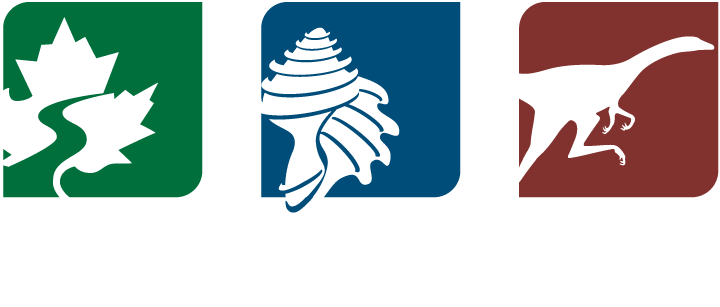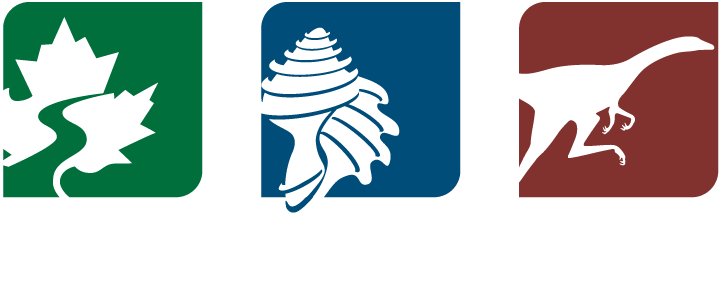Robert M. Ross
Dr. Robert M. Ross
Associate Director for Outreach
Education
B.S., Geological Sciences, 1984, Case Western Reserve University
Ph.D., Earth and Planetary Sciences, 1990, Harvard University
Overview
Rob Ross is the Associate Director for Outreach (education and exhibits) at the Paleontological Research Institution and its Museum of the Earth. Rob received his B.S. in Geological Sciences from Case Western Reserve University and a Ph.D. in Earth and Atmospheric Sciences from Harvard University. He spent two years as a post-doctoral fellow at the University of Kiel in Germany and four years in the Faculty of Science at Shizuoka University in Japan before coming to PRI in 1997. At PRI he is responsible for the education and exhibits programs and oversees a wide variety of grant-funded projects.
Research Focus
Rob’s primary scientific research interests include Paleontology, sedimentology, paleoceanography. He focuses on the diversification and distribution of life in the context of interactions of climate, ocean, and tectonic dynamics, e.g., using late Cenozoic ostracodes from the Indo-Pacific. Additionally, he studies the influence of biotas upon aquatic chemistry, climate, and sedimentation, e.g., using computer simulation of coastal ecosystems and field/experimental studies of animal-sediment relationships. Finally, he researches the nature of faunal taxonomic change through time and space, e.g., using Middle Devonian marine faunas of Central NY.
As an educator, his education research includes Earth system education, informal science education, educator professional development. He studies the integration of authentic research into education contexts to improve interest in and understanding of scientific inquiries and the integration of activities using place-based real-world to improve long-term interest in and understanding of natural science. He also focuses on approaches to improving understanding of historical sciences and systems thinking, and applications to important core science education issues (geologic time, evolutionary processes, climate change). Some of his current projects include working with PRI and Cornell colleagues on the use of paleontological research in teaching the nature of science to teachers and their students; reaching rural audiences on climate change; public understanding of energy issues, especially shale gas; and cultural inertia in science concepts such as perceptions of dinosaurs.
Selected Publications
Ross, R.M., Haas, D.A., Hendricks, J.R., and Allmon, W.D., 2019, Paleontological Research Institution’s Museum of the Earth and Taughannock State Park as teaching resources, in: New York State Geological Association 91st Annual Meeting Field Trip Guide, Hobart and William Smith Colleges, Section B1, p.1-31
Allmon, W.D., Dietl, G.P., Hendricks, J.R., and Ross, R.M., 2018, Bridging the two fossil records: paleontology’s “big data” future resides in museum collections, IN: Rosenberg, G., (ed.), Museums at the Forefront of the History and Philosophy of Geology, Geological Society of America Special Publication, https://doi.org/10.1130/2018.2535(03)
Allmon, W.D. and Ross, R.M., 2018, Evolutionary Remnants as Widely Accessible Evidence for Evolution: The Structure of the Argument for Application to Evolution Education. Evolution: Education and Outreach 11(1). https://doi.org/10.1186/s12052-017-0075-1
Ross, R. M. (and authors of A Very Short Guide to Climate Change), 2017, Climate Change Through Earth History, in: I. H. H. Zabel, D. Duggan-Haas, and R. M. Ross (eds.). 2017. The Teacher-Friendly Guide to Climate Change. Paleontological Research Institution, Ithaca, New York, p.53-90
Zabel, I. H. H., D. Duggan-Haas, and R. M. Ross (eds.). 2017. The Teacher-Friendly Guide to Climate Change. Paleontological Research Institution, Ithaca, New York, 282 pp.
Swaby, A. N., M. D. Lucas, R. M. Ross (eds.). 2016. The Teacher-Friendly Guide to the Earth Science of the Southeastern US. Paleontological Research Institution, Ithaca, New York, 460 pp.
Swaby, A. N., M. D. Lucas, R. M. Ross (eds.). 2016. The Teacher-Friendly Guide to the Earth Science of the Southwestern US. Paleontological Research Institution, Ithaca, New York, 458 pp.
Lucas, M. D., R. M. Ross, & A. N. Swaby (eds.). 2015. The Teacher-Friendly Guide to the Earth Science of the Northwestern US. Paleontological Research Institution, Ithaca, New York, 450 pp.
Lucas, M. D., R. M. Ross, & A. N. Swaby (eds.). 2015. The Teacher-Friendly Guide to the Earth Science of the South Central US. Paleontological Research Institution, Ithaca, New York, 428 pp.
Lucas, M. D., R. M. Ross, & A. N. Swaby (eds.), 2014, The Teacher-Friendly Guide to the Earth Science of the Midwestern US. Paleontological Research Institution, Ithaca, New York, 316 pp.
Lucas, M. D., R. M. Ross, & A. N. Swaby (eds.), 2014, The Teacher-Friendly Guide to the Earth Science of the Western US, Paleontological Research Institution, Ithaca, New York, 436 pp.
Ross, R.M., and W. D. Allmon, 2013, The posture of T. rex: Why do student views lag behind the science? Journal of Geoscience Education 61(1): 145-160
Duggan-Haas, D., R. M. Ross, and W. D. Allmon, with K. E. Cronin, T. A. Smrecak, and S. Auer Perry. 2013. The Science Beneath the Surface: A Very Short Guide to the Marcellus Shale. Paleontological Research Institution (Special Publication 43), Ithaca, New York, 252 pp.
Allmon, W.D., Smrecak, T.A., and Ross, R.M., 2010, Climate Change Past, Present, and Future: A Very Short Guide. Paleontological Research Institution: Ithaca, NY 196 pp.


